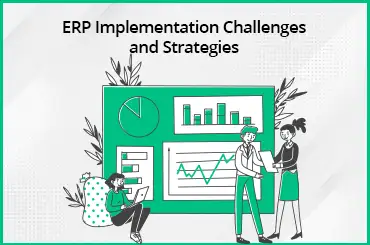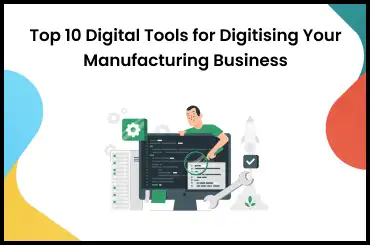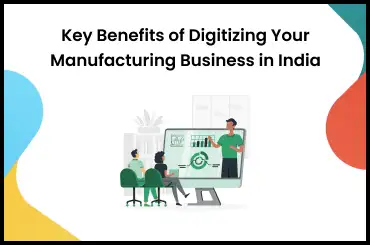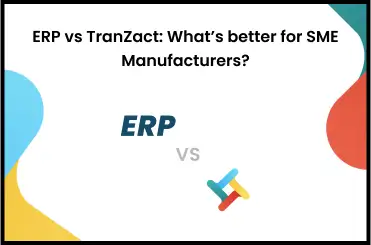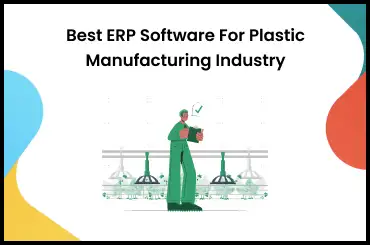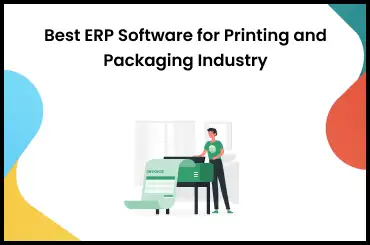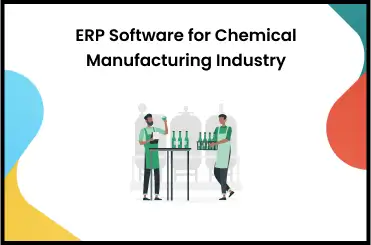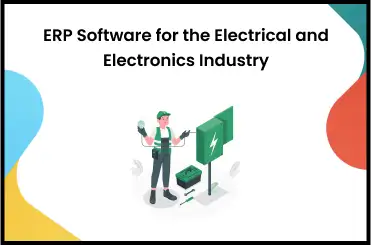ERP (Enterprise Resource Planning) is one of the most beneficial systems for any type of business. If you are an entrepreneur, you might already know the details and benefits of ERP systems that can improve your manufacturing process and sales. But you should also understand the best use case for ERP system so that you can use its complete features. ERP systems provide insights and efficiency to your business and help you gain an advantage in the long run. It tends to give a high ROI (Return on Investment) to businesses in a short time. There are many aspects and roles of ERP business software that make you gain efficiency in multiple sectors of your business. Finances, savings, customer relations, sales, and marketing, along with helpful inventory management tools, just work in your favour. More detailed information about these use case for ERP system is mentioned in this blog post, so keep reading.
Use Cases Statistics At A Glance
- More than 75% of enterprises use ERP software to automate their functions and management.
- According to recent statistics, more than 50% of businesses and organizations believe that ERP software has increased their agility.
- According to CAGR (Compound Annual Growth Rate), a growth of close to 10% in the ERP software market is possible in the next five years.
ERP Use Cases For Businesses
ERP modules come in different categories for every part of your business. It is up to you what type of System or Use case you use for maximum benefits. A business eventually becomes bigger, and its services increase along with its customers. When that time comes, a business needs to be ready for faster deliveries and quality management. The use case for ERP systems helps you make your decisions faster and take action according to your goals. Here are a few use case diagram for ERP system that will help you understand their full potential.
1. Managing Finances
Finances are one of the most important functions of ERP. Making mistakes is common, but it can cause damage to your reputation and business at the same time. Thus, knowing the proper use case for ERP system tools would be beneficial to avoid such blunders at your company. ERP systems for your finances will help you:
- Maintain Statements
- Monitor Accounts
- Create Invoices
- Manage your Cash Flow
- Control your Costs
Further, the use case for ERP system is managing your finances by simply automating the tasks that were hard for your employees before. So, you can get the main benefit of ERP components for tracking payments, supplies, orders, and more activities.
2. CRM (Customer Relation Management)
When you own a business, you work on building better relations with your clients or customers. This helps you gradually improve your brand name and profit. Here, CRM (customer relationship management) helps you automate your customer interactions, identify new customers, and identify upsell chances for your business. The best use case for ERP system example is that it helps you interact with the new customer, identify their preferences, and suggest them better products. This builds trust among your customers, and your brand is portrayed as a reliable and trustworthy company.
3. Managing Human Resources
A business, whether it's small or large scale, needs to hire people and manage present employees, their salary, increments, and many other human resources prospects. When you take advantage of a use case for ERP system in human resource management, you save money and time in various ways. HR management ERP modules ensure the automation of your complete human resource system. Automating salaries, rewards, increments, and appraisals is the least of its benefits. Using this ERP module in the HR department, you can even recruit new employees for your vacant posts and train them for a headstart.
4. Sales And Marketing Use Case Of ERP System
The next use case for ERP system models is in sales and marketing your brand. ERP modules will help you improve sales order processing systems. It also helps you in prospecting and managing your contacts, which are the least of its benefits. Budgets, market predictions, financial results, and many other features are included with the sales and marketing ERP modules. This use case for ERP system tools will let your sales and marketing executives get in contact with your clients and get a follow-up. If you are a small or medium business(SME) owner with many things already on your plate, you would want to take advantage of this ERP system to resolve your marketing and sales issues.
5. Managing Inventory
Businesses, either small or large scale, all need good inventory management software. Here, automating your stock levels, calculations, stock inventories, and re-order schedules is yet another one of the use cases for Enterprise Resource Planning (ERP) software. This system will make purchases and re-orders on your behalf and save you a lot of money and time. The ERP system gives your employees authorised access to the centralised database of real-time consignment inventory details. Making it easy for you to handle sales and customers without ever running out of products.
ERP Use Cases That Can Help Your ERP Decision
Businesses put a lot of effort into their decision-making processes, whether it’s about hiring employees or managing their work process. If you are running a business, you should be aware of blind spots that can affect your business in the long run.
- Making that process easy, the use case for ERP system makes your decision-making faster.
- Implementation of ERP systems increases your sales and marketing capacity by managing your inventory and customer relations.
- It saves money and time by reducing human resource management efforts as well.
All of these features help you make faster and more profitable decisions for your business that work in your favour all the time. But always remember that you are getting a reliable ERP system from an experienced and trusted ERP vendor like TranZact for your enterprise asset management. These use cases for ERP system tools provide you with insights and automate your business’s work process in many sectors. Whether it's finance, HR, inventory management, or documentation, if you are aware of the full use case for ERP system models, you are good at managing it.
Use ERP Software to Benefit Your Business with TranZact
Cloud ERP software helps businesses manage their resources. Whether it's for targeting new customers, making product lists, salaries, or sales, there are many use case for ERP systems. If you are going to use ERP for the first time or want to upgrade it to the best ERP solution, TranZact would be a reliable one. Manufacturing ERP Software from TranZact is useful in measuring and managing all the internal and external aspects of your business. This automates your business with smart ERP software to enjoy the ease and convenience it brings to your business.
FAQs
Q1) What are the installation processes of ERP software?
The installation process starts with providing your needs to your service provider. It includes installation in all the units and key installations of all aspects of your business.
Q2) How can you plan the implementation of ERP?
ERP implementation planning completely depends on the leadership of the business. There must be properly set goals for your business's future, as ERP systems for business are for the long term.
Q3) What is the cost of ERP implementation?
The cost of all the ERP modules and use cases will be different as per the needs and objectives of your business. You should discuss with the TranZact team to know the right cost of ERP implementations in your company.
Q4) What is the ROI for ERP implementation?
The ROI depends on the investment a business owner makes into the implementation of their ERP solutions. Your implementation will have different benefits, and the return you get will depend on that as well.
Q5) Will the ERP fail to work at any time?
ERP may fail sometimes, as many aspects are responsible for possible failures. Leadership issues and poor management are also responsible for the failure sometimes.







